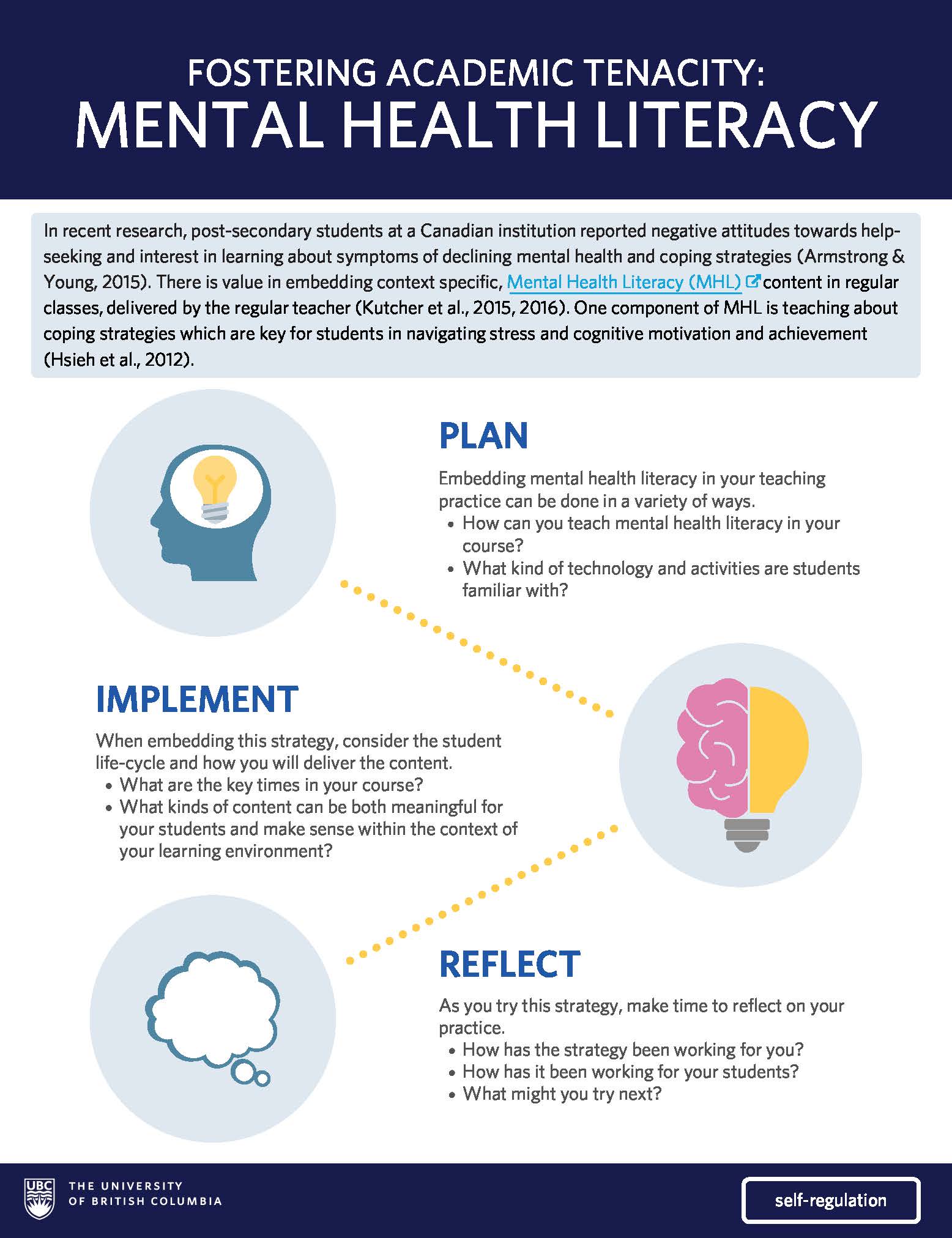Embedding Mental Health Literacy
In recent research, post-secondary students at a Canadian institution reported negative attitudes towards help-seeking and interest in learning about symptoms of declining mental health and coping strategies (Armstrong & Young, 2015).
Mental Health Literacy (MHL) programming is context dependent (Kutcher et al., 2016) and there is value in embedding content in regular classes, delivered by the regular teacher (Kutcher et al., 2015). Developing effective coping strategies that support students’ ability to navigate stress, cognitive motivation, and achievement is a key component of MHL in an educational context (Hsieh et al., 2012).
Promising Practices
Agnes d’Entremont coordinates and teaches in the mechanical engineering second-year program, MECH 2. Over the course of this program, a variety of mental health literacy components were embedded in the course curriculum through multiple modes of instruction (i.e., online activities, in-person workshops). These embedded activities were opportunities for students to learn more about the stress response, strategies for coping with stress, and resources on campus.
The impact of the mental health literacy activities was assessed with a key question in mind: How does introducing a mental health literacy session relate to students’ ability to recognize stress, seek help, and employ coping strategies?
Key findings include:
- Most students found the workshop content about the stress response and coping strategies helpful for both their personal lives and academics.
Selected References and Measures
-
Armstrong, L. L., & Young, K. (2015). Mind the gap: Person-centred delivery of mental health information to post-secondary students. Psychosocial Intervention,24(2), 83-87.
-
Hsieh, P. H., Sullivan, J. R., Sass, D. A., & Guerra, N. S. (2012). Undergraduate engineering students’ beliefs, coping strategies, and academic performance: An evaluation of theoretical models. The Journal of Experimental Education, 80(2), 196-218.
-
Kutcher, S., Wei, Y., & Coniglio, C. (2016). Mental health literacy: Past, present, and future. The Canadian Journal of Psychiatry, 61(3).
-
Kutcher, S., Wei, Y., & Morgan, C. (2015). Successful application of a Canadian mental health curriculum resource by usual classroom teachers in significantly and sustainably improving student mental health literacy. Canadian Journal of Psychiatry ,60(12), 580-586.
- Martin, A. J., & Marsh, H. W. (2008). Academic buoyancy: Towards an understanding of students' everyday academic resilience. Journal of School Psychology, 46(1), 53-83.
- Pintrich, P. R., Smith, A. F., Duncan, T. & Mckeachie, W. J. (1991). A manual for the use of the motivated strategies for learning questionnaire (MSLQ). Ann Arbor, MI: The University of Michigan.
- The University of British Columbia. (2018). The undergraduate experience survey 2018.
Go Further

Recommended Citation: Health Promotion & Education, UBC (2019). Fostering academic tenacity: Embedding mental health literacy. Retrieved from: wellbeing.ubc.ca/wble
We gratefully acknowledge the financial support for this project provided by UBC Vancouver students via the Teaching and Learning Enhancement Fund.